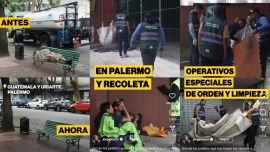Every three hours, a girl aged between 10 and 14 years of age gives birth in Argentina. All of them are victims of sexual abuse, and most only access Argentina’s healthcare system at the end of their pregnancies.
In 2015, there were 2,787 births to mothers under the age of 15, for an early fertility rate of 1.6 in every 1,000, according to Social Development Ministry statistics released earlier this month in its Pregnant Girls and Teenagers Under 15 report.
The problem is most concentrated in Argentina’s northeastern provinces: rates in Chaco, Formosa and Misiones are triple and even quadruple those of Buenos Aires province, Chubut in the south, and Córdoba in the centre of the country.
Experts note that pregnancies among girls this young puts the lives of the mother at risk.
“The occurrence of a pregnancy before physical, mental and social maturity has consequences in the short and long term, affecting the right to a healthy childhood and adolescence, by compromising the earlier stages of the life cycle,” the report warned.
It was prepared by the Ministry’s National Health Programme in collaboration with UNICEF Argentina, OPS/ OMS and FPNU-Argentina.
Other similar studies have shown that the rates of biomedical risks related to pregnancies and birth, including maternal deaths, infections, eclampsia, obstetric fistulas, premature births and neonatal death, are far higher among younger women.
“The risk of maternal death in youths under 15 in countries with lower and medium incomes per capita is twice as high than among adult women,” the report indicated.
Argentina’s Right of the Child Committee warns that one of the biggest risks for pregnant teenagers is a tendency to experience depression and to develop suicidal thoughts.
According to available statistics, most pregnant girls under the age of 15 fall pregnant as a result of coersive sexual abuse committed by a family member or someone from their community.
“Argentina’s laws determine that sexual relations with children under 13 years of age amounts to sexual abuse. Additionally, abuse is assumed when the victim is 13 to 16 years of age, on the grounds that these cases involve the manipulation of sexual immaturity and a power imbalance in favour of the adult,” CIPPEC think-tank specialists Jose Florito and Alejandro Biondi explained.
Girls and teenagers in this situation have been entitled to abort since the year 1921, according to the Right to Legal Interruption of the Pregnancy (ILE) in Argentina’s Penal Code. For girls under 15 years of age, the law also considers that the mother’s life and psychology are at risk, which also allows her and her family to opt for ILE.
Avoiding teen pregnancies requires integral sexual education from primary school, guarantees surrounding the right to ILE, and sexual abuse prevention.
The Social Development Ministry has put in place the National Programme for the Prevention and Reduction of Unwanted Pregancies Among Teenagers, which 12 provinces have signed up too.
“Girls who are forced to carry their pregnancies until the final term are not ‘great mothers’: they are victims of an absent State’s institutional violence or, even worse, of a State which is complicit with the abuse of their rights,” CIPPEC said in a statement responding to a recent editorial that sparked controversy in the La Nación newspaper, titled “Girl mothers with a capital M.”
UNICEF Argentina, Amnesty International, CELS, the Huésped Foundation and the Latín American Team for Justice and Gender also expressed their rejection of the editorial.
“Child pregnancies are not related to any ‘maternal instinct’, it is sexual abuse and as such it is a forced pregnancy. The adults [families, the State, institutions] are responsible for protecting girls and boys against sexual abuse,” UNICEF said.






















Comments